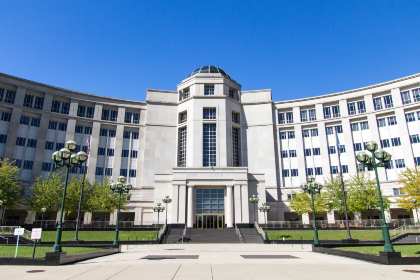Super Lawyers Honors 2025 Kotz Sangster Attorneys

Kotz Sangster is pleased to announce the recognition of our attorneys as 2025 Michigan Super Lawyers and Rising Stars.


Under the new rules, civil litigation going forward must have a discovery protocol in place, virtually from the initiation of the lawsuit. Discovery is the process by which information is requested and exchanged between parties to develop, prove, and/or defend their cases.
Parties to a lawsuit will now be required to immediately identify, preserve and collect anything that may be construed as evidence. Due to the vast incorporation of technology in our businesses and personal lives, the Court is taking steps to ensure all parties are equally responsible for the preservation of evidence. This refers to information contained or transmitted in texts, emails, network servers, etc.
We are recommending our clients contact us to confirm their internal protocols are in compliance with the Michigan Supreme Court’s new guidelines. Developing a consistent internal practice will promote long-term cost-savings, in the event your business becomes involved in litigation.
A short summary regarding the most significant changes to Michigan’s newly-adopted court rules follows for your reference.
The Michigan Supreme Court has adopted significant changes to the Michigan Court Rules, which will go into effect on January 1, 2020, and considerably change the way cases are litigated, particularly in relation to how parties must conduct discovery. The new rules are designed to encourage the swift disclosure of relevant information to help simplify and clarify contested issues, and reasonably narrow the scope of discovery. Below is a quick synopsis regarding the most important rule changes and the effect they will have on litigation after their implementation.
Significantly, Michigan’s new rules will now require parties to serve “initial disclosures,” setting forth, among other things: (a) the facts and law supporting the party’s claims and/or defenses; (b) information regarding witnesses; (c) a description regarding the location and contents of evidence, including electronically-stored information (“ESI”); and (d) a computation of each category of damages claimed.
These initial disclosures must be served by the plaintiff within 14 days of service of defendant’s responsive pleading and by the defendant within 28 days of serving their responsive pleading.
A party will not be excused from making disclosures because the party has not fully investigated the case, meaning litigants will need to invest more time and resources into discovery on the front end of lawsuits.
To ensure compliance and strategic advantage, our clients should promptly confer with counsel regarding initial disclosures, and identify, preserve, and collect relevant evidence, including ESI.
Parties will no longer be allowed to immediately seek discovery at the commencement of lawsuits at the circuit court level. Parties must now wait until after initial disclosures have been served to seek discovery.
Further, the rules have been amended to adopt a “proportionality” standard similar to the one set forth in the federal rules. Instead of broadly allowing for the discovery of any non-privileged matters “reasonably calculated to lead to the discovery of admissible evidence,” the new rule will limit the scope of discovery to “any non-privileged matter that is relevant to any party’s claims or defenses and proportional to the needs of the case, taking into account all pertinent factors, including whether the burden or expense of the proposed discovery outweighs its likely benefit, the complexity of the case, the importance of the issues at stake in the action, the amount in controversy, and the parties’ resources and access to relevant information.”
We will analyze these considerations for our clients on each and every lawsuit, and seek protections where necessary to curtail discovery-related costs.
Under the new rules, upon court order or written request by another party, the parties must confer among themselves and prepare a proposed discovery plan. All parties and attorneys of record are jointly responsible for arranging the conference and for attempting in good faith to agree on a proposed discovery plan. Failure by a party or attorney to participate in good faith in developing a discovery plan could lead to sanctions.
The discovery plan must address all disclosure and discovery matters, and propose deadlines for completion of disclosure and discovery. With the court’s approval, parties may stipulate to changes to the timing, form, and requirements of discovery in a scheduling order. However, parties must show good cause to request a change in deadlines set by a scheduling order.
Where a case is reasonably likely to include the discovery of ESI, parties may agree to, the judge may order the parties to participate in, or a party may file a motion requesting, an ESI Conference. At such a conference, the parties will consider issues related to the identification, preservation, and production of ESI. Within 14 days after an ESI Conference, the parties will be required to file an ESI Discovery Plan with the court. It is important for a party to confer with counsel early on to assess ESI-related issues and develop a viable protocol tailored to best serve the party’s needs and strategic goals in each case.
The rules have been amended to limit any deposition of a party to not exceed one day of seven hours. Notices for corporate representative depositions must be served at least 14 days prior to the scheduled deposition. The rules have also been amended to limit each separately represented party to 20 interrogatories (with each discrete subpart of an interrogatory counting as a separate interrogatory).
These new limitations should help reduce discovery-related costs considerably.
Download: New Michigan Court Rules Jan 2020